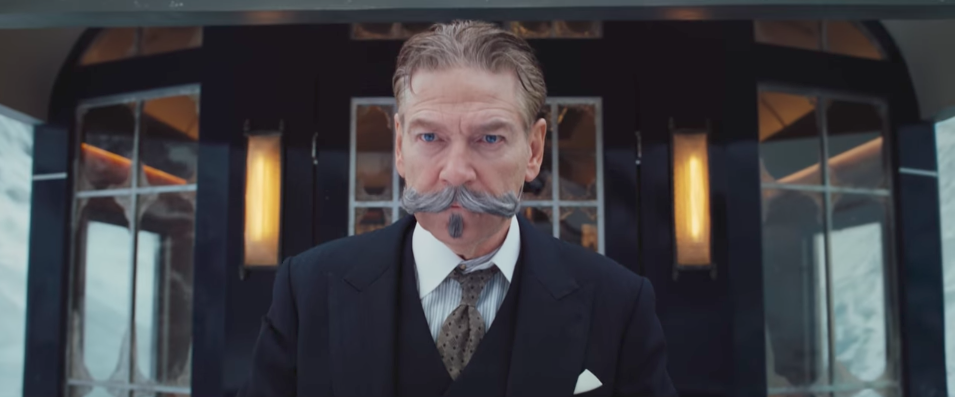Murder on the Orient Express has a fatal flaw: Much like the titular train, the movie’s story gets derailed and is set adrift, seemingly unaware of what makes it appealing in the first place.
Based on a 1934 Agatha Christie novel, Murder follows detective Hercule Poirot, who is played by the film’s director, Kenneth Branagh. The film’s costuming and set design fit the time period perfectly and provide an immersive experience, which can add to both character and scene. This is only deterred when vast cityscapes and mountain ranges feel fake. A few conversations take place outside the train in the snow, and the illusion is ruined when the characters not only don’t appear cold, but look as though they’ve been plopped down simply for our viewing.
The film’s star-studded cast provides plenty of exciting performances. Unfortunately, they’re not juggled well, and some are underused. When given their chance to shine, actors Josh Gad, Daisy Ridley, Leslie Odom Jr. and Michelle Pfeiffer shine brightly. Unfortunately, each character functions as a plot device more than anything.
The plot builds well right until the pivotal moment — when a passenger on the train is murdered. From there, the story loses its way. Like a train derailed by an avalanche, the story feels off track and lost, but instead of being stuck, the film speeds toward the ending. The movie’s dramatic appeal disappears, and we barely spend enough time with anyone to feel the full drama that should accompany a lost train with suspicious passengers and a murderer on board.
A few action scenes feel completely misplaced and misguided. They don’t fit within the story, or the murder-mystery genre. All they do is add a bit to Branagh’s Poirot, who is established as experienced and egotistical from the film’s beginning.
Luckily, the movie does not stray from the source material or the time period for the most part. The only out-of-place moments feel that way because they’re not part of the book. Most of all, despite what the trailers may have suggested, the film only contains period music, with no modern tunes interrupting or ruining the mood.
The film is entertaining and fun in many moments, but little seems to be gained from catching it in the theater, so perhaps seeing it when it inevitably airs on TV will be just as rewarding.
Murder ultimately shows, if nothing else, that Gad can do more than comedy and Ridley will hopefully continue to get good roles. It also proves that when a film tries to turn back the clock to a specific time period, it’s best not to rely on special effects.
2/4 shells



